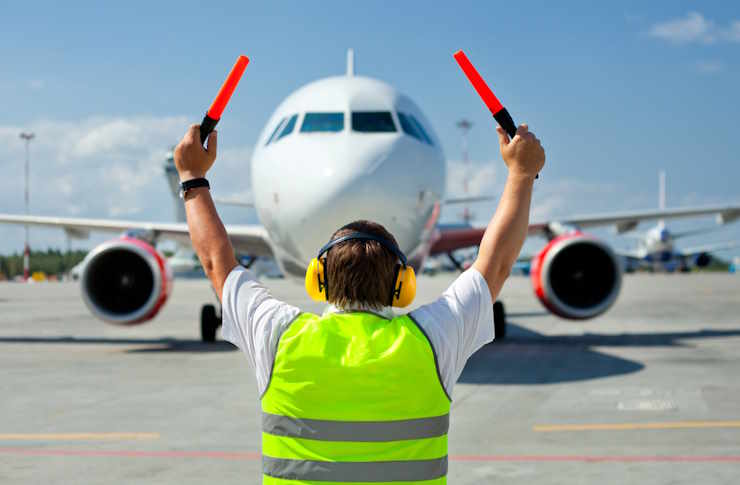Aviation Training Programs: Types, Requirements, and Career Paths
Aviation training encompasses several specialized programs designed to prepare individuals for various roles in the aviation industry. Private pilot training serves as the foundation, allowing students to fly small aircraft for personal use. Commercial pilot training builds upon this foundation, preparing pilots for airline careers or charter services. Instrument rating programs teach pilots to navigate using aircraft instruments rather than visual references, essential for flying in poor weather conditions.

The aviation industry offers numerous pathways for individuals passionate about flight, aircraft systems, and aerospace operations. Aviation training programs vary significantly in scope, duration, and focus, catering to different career goals within this expansive field. From piloting aircraft to maintaining complex systems and managing airport operations, each specialty requires dedicated education and hands-on experience. This comprehensive guide explores the essential aspects of aviation training to help you navigate your educational and professional journey.
What are the Different Types of Aviation Training Programs?
Aviation training encompasses several distinct categories, each designed for specific career paths. Private pilot training serves as the entry point for many aspiring aviators, teaching fundamental flight skills and aeronautical knowledge. Commercial pilot programs build upon this foundation, preparing students for careers flying passengers or cargo for compensation. Airline transport pilot training represents the highest certification level, required for captains at major airlines.
Beyond piloting, aviation maintenance technician programs focus on aircraft systems, engines, and airframe structures. These programs prepare students for FAA certification as Airframe and Powerplant mechanics. Air traffic control training develops skills in managing aircraft movements safely and efficiently. Aviation management programs combine business education with industry-specific knowledge, preparing graduates for leadership roles in airlines, airports, and aerospace companies. Unmanned aircraft systems programs have emerged recently, addressing the growing demand for drone operators and managers in commercial applications.
What Qualifications are Needed to Start Aviation Training?
Entry requirements vary depending on the specific program and career path. For pilot training, candidates must be at least 17 years old to obtain a private pilot certificate and 18 for commercial certification. A high school diploma or equivalent is typically required, though no specific college degree is mandated for flight training itself. Prospective pilots must pass an FAA medical examination, with requirements varying based on the certificate level sought. Class 1 medicals are most stringent for airline transport pilots, while Class 3 suffices for private pilots.
Aviation maintenance programs generally require a high school diploma with strong performance in mathematics and science courses. English language proficiency is essential across all aviation disciplines, as it serves as the international language of aviation. Air traffic controller candidates must pass rigorous aptitude tests, background checks, and medical screenings. Many programs also require candidates to be U.S. citizens and under age 31 at the time of application. Aviation management programs typically require college admission standards, including standardized test scores and academic transcripts.
How Long Does it Take to Complete Aviation Training?
Training duration depends heavily on the program type, intensity, and individual progress. Private pilot certification can be achieved in as little as three to six months with dedicated full-time training, though part-time students may require a year or longer. Commercial pilot training typically adds another six to twelve months beyond the private certificate. Airline transport pilot certification requires significant flight experience—1,500 hours minimum—which can take several years to accumulate.
Aviation maintenance technician programs generally span 18 to 24 months for combined Airframe and Powerplant certification. Accelerated programs may condense this timeline, while part-time options extend it. Air traffic control training involves several months of classroom instruction followed by on-the-job training that can last two to four years before full certification. Bachelor’s degree programs in aviation management or professional piloting typically require four years of full-time study. Some students pursue integrated programs combining flight training with academic coursework, streamlining the overall timeline.
How Much Does Aviation Training Cost?
Aviation training represents a significant financial investment, with costs varying widely based on program type, location, and institution. Understanding these expenses helps prospective students plan accordingly and explore financing options.
| Program Type | Typical Provider | Cost Estimation |
|---|---|---|
| Private Pilot Certificate | Local Flight Schools | $8,000 - $15,000 |
| Commercial Pilot Certificate | Flight Training Academies | $30,000 - $50,000 |
| Airline Transport Pilot | ATP Flight School, CAE | $70,000 - $100,000+ |
| A&P Mechanic Certificate | Aviation Technical Schools | $20,000 - $40,000 |
| Aviation Management Degree | Embry-Riddle, UND, Purdue | $80,000 - $200,000 |
| Drone Pilot Certification | Online/Local Providers | $150 - $500 |
Prices, rates, or cost estimates mentioned in this article are based on the latest available information but may change over time. Independent research is advised before making financial decisions.
These figures include tuition, flight hours, materials, and testing fees but may not account for living expenses, additional flight hours beyond minimums, or certification renewals. Many students require more than the minimum flight hours to achieve proficiency, increasing total costs. Financial aid, scholarships, veteran benefits, and airline-sponsored programs can significantly reduce out-of-pocket expenses. Some regional airlines offer tuition reimbursement or cadet programs that cover training costs in exchange for employment commitments.
What Career Opportunities are Available After Completing Aviation Training?
Completing aviation training opens diverse career pathways across the aerospace industry. Commercial pilots may begin careers as flight instructors, building experience while teaching others. Regional airline positions offer the next step, with pilots eventually advancing to major carriers where compensation and benefits increase substantially. Corporate aviation provides alternatives to airline flying, with pilots operating private jets for businesses and high-net-worth individuals.
Aviation maintenance technicians find employment with airlines, maintenance repair organizations, aerospace manufacturers, and government agencies. Experienced mechanics can advance to inspector, supervisor, or management positions. Air traffic controllers work for the FAA or private contract towers, managing airspace safety with stable government employment and competitive compensation. Aviation managers pursue careers in airline operations, airport administration, aerospace manufacturing, and aviation consulting.
Emerging fields include unmanned aircraft operations for commercial applications such as aerial photography, infrastructure inspection, agriculture, and package delivery. Aviation safety specialists, flight dispatchers, and aviation educators represent additional career options. The industry’s global nature offers opportunities for international employment and travel. Career advancement often involves continuous education, additional certifications, and specialized training throughout one’s professional life.
Building Your Aviation Career Foundation
Aviation training requires commitment, financial investment, and dedication to safety and excellence. Prospective students should thoroughly research programs, visit facilities, speak with current students and graduates, and carefully evaluate costs against career goals. Many successful aviation professionals began with modest goals and expanded their certifications over time as opportunities emerged. The industry values practical experience, continuous learning, and professional conduct. Whether your passion lies in piloting aircraft, maintaining complex systems, or managing aviation operations, proper training provides the essential foundation for a rewarding career in this dynamic field.




